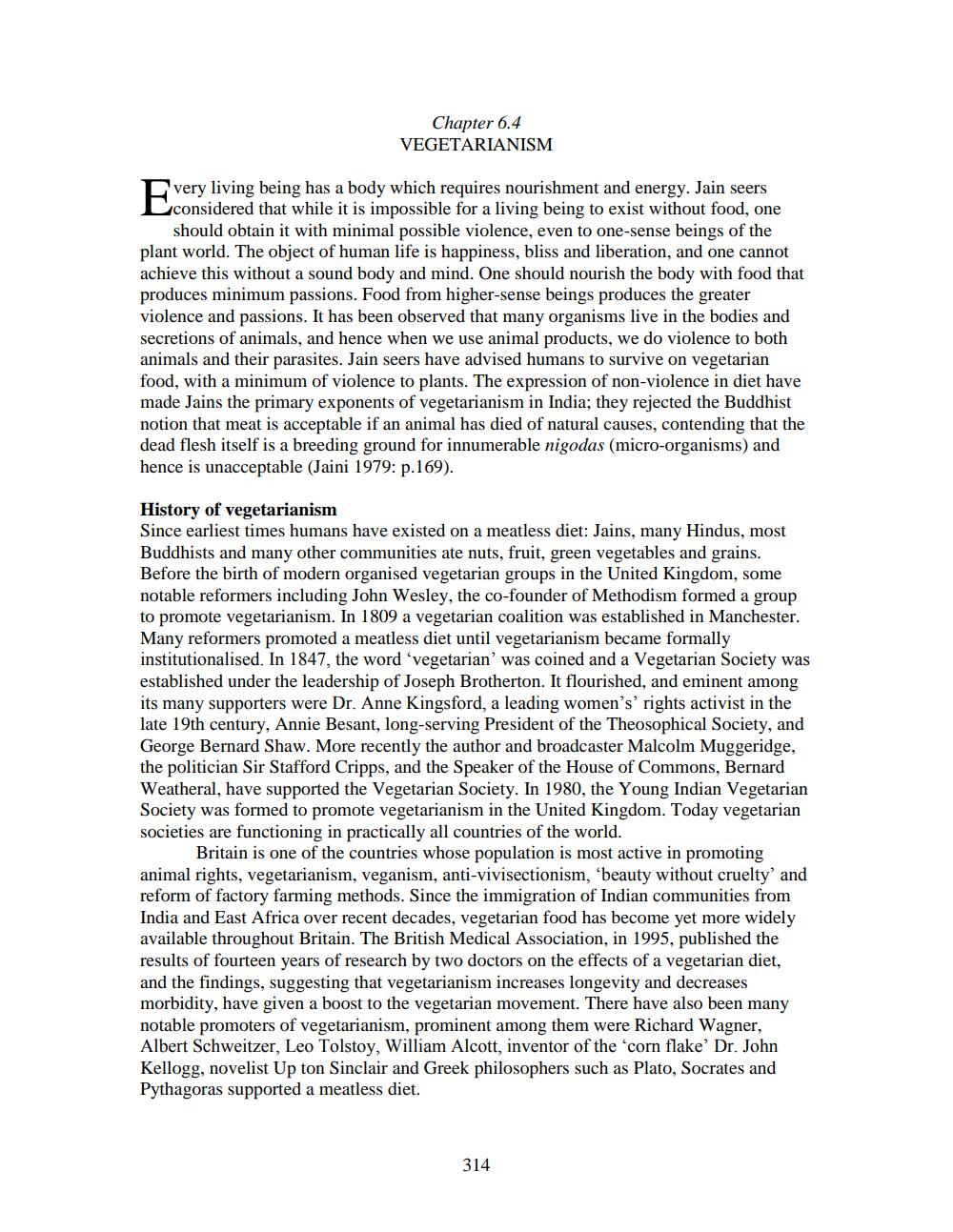________________
Chapter 6.4 VEGETARIANISM
very living being has a body which requires nourishment and energy. Jain seers
it impossible a living being to exist food, one
should obtain it with minimal possible violence, even to one-sense beings of the plant world. The object of human life is happiness, bliss and liberation, and one cannot achieve this without a sound body and mind. One should nourish the body with food that produces minimum passions. Food from higher-sense beings produces the greater violence and passions. It has been observed that many organisms live in the bodies and secretions of animals, and hence when we use animal products, we do violence to both animals and their parasites. Jain seers have advised humans to survive on vegetarian food, with a minimum of violence to plants. The expression of non-violence in diet have made Jains the primary exponents of vegetarianism in India; they rejected the Buddhist notion that meat is acceptable if an animal has died of natural causes, contending that the dead flesh itself is a breeding ground for innumerable nigodas (micro-organisms) and hence is unacceptable (Jaini 1979: p.169).
History of vegetarianism
Since earliest times humans have existed on a meatless diet: Jains, many Hindus, most Buddhists and many other communities ate nuts, fruit, green vegetables and grains. Before the birth of modern organised vegetarian groups in the United Kingdom, some notable reformers including John Wesley, the co-founder of Methodism formed a group to promote vegetarianism. In 1809 a vegetarian coalition was established in Manchester. Many reformers promoted a meatless diet until vegetarianism became formally institutionalised. In 1847, the word 'vegetarian' was coined and a Vegetarian Society was established under the leadership of Joseph Brotherton. It flourished, and eminent among its many supporters were Dr. Anne Kingsford, a leading women's' rights activist in the late 19th century, Annie Besant, long-serving President of the Theosophical Society, and George Bernard Shaw. More recently the author and broadcaster Malcolm Muggeridge, the politician Sir Stafford Cripps, and the Speaker of the House of Commons, Bernard Weatheral, have supported the Vegetarian Society. In 1980, the Young Indian Vegetarian Society was formed to promote vegetarianism in the United Kingdom. Today vegetarian societies are functioning in practically all countries of the world.
Britain is one of the countries whose population is most active in promoting animal rights, vegetarianism, veganism, anti-vivisectionism, "beauty without cruelty' and reform of factory farming methods. Since the immigration of Indian communities from India and East Africa over recent decades, vegetarian food has become yet more widely available throughout Britain. The British Medical Association, in 1995, published the results of fourteen years of research by two doctors on the effects of a vegetarian diet, and the findings, suggesting that vegetarianism increases longevity and decreases morbidity, have given a boost to the vegetarian movement. There have also been many notable promoters of vegetarianism, prominent among them were Richard Wagner, Albert Schweitzer, Leo Tolstoy, William Alcott, inventor of the 'corn flake' Dr. John Kellogg, novelist Up ton Sinclair and Greek philosophers such as Plato, Socrates and Pythagoras supported a meatless diet.
314




